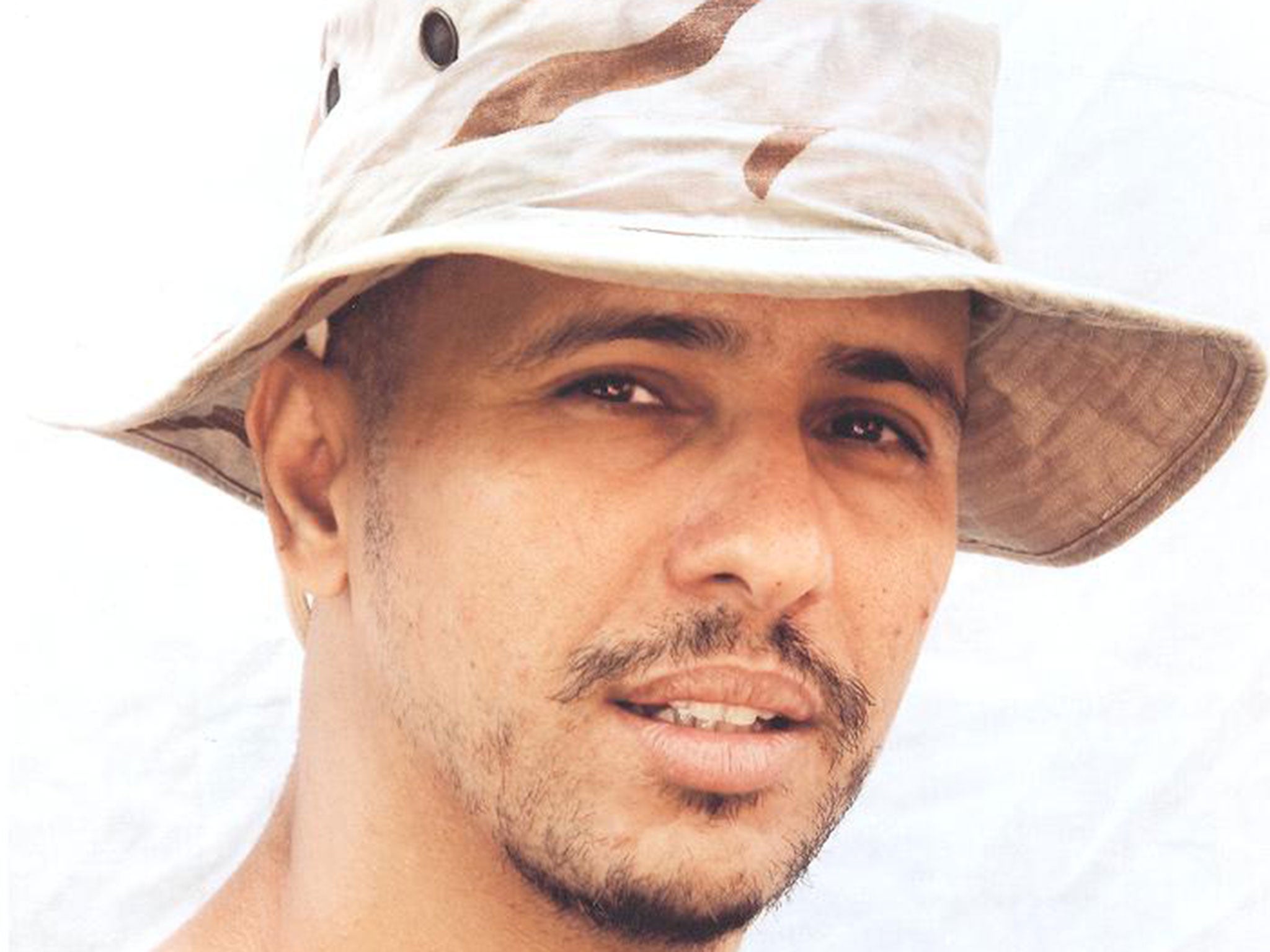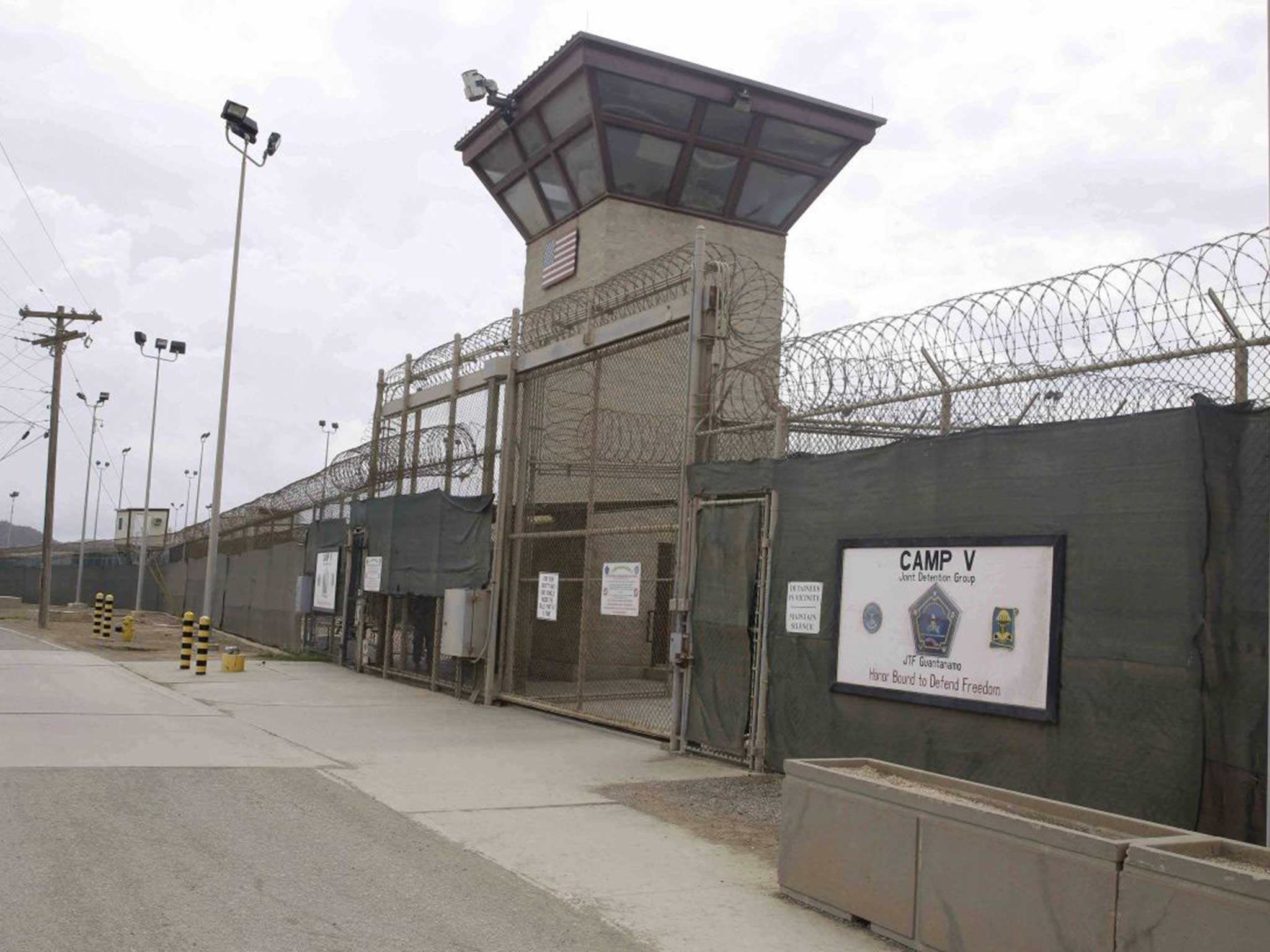Guantanamo detainee Mohamedou Ould Slahi 'was forced to have sex with three female interrogators'
Mohamedou Ould Slahi claims he was subjected to brutal treatment, including being forced to drink salt water and repeatedly beaten

Your support helps us to tell the story
From reproductive rights to climate change to Big Tech, The Independent is on the ground when the story is developing. Whether it's investigating the financials of Elon Musk's pro-Trump PAC or producing our latest documentary, 'The A Word', which shines a light on the American women fighting for reproductive rights, we know how important it is to parse out the facts from the messaging.
At such a critical moment in US history, we need reporters on the ground. Your donation allows us to keep sending journalists to speak to both sides of the story.
The Independent is trusted by Americans across the entire political spectrum. And unlike many other quality news outlets, we choose not to lock Americans out of our reporting and analysis with paywalls. We believe quality journalism should be available to everyone, paid for by those who can afford it.
Your support makes all the difference.The former US defence secretary Donald Rumsfeld should be charged with conspiracy to torture in light of the alleged ill-treatment – including sexual abuse – documented by Mohamedou Ould Slahi during his 12 years detention without charge in Guantanamo Bay, his lawyer has claimed.
Mr Slahi’s Guantanamo Diary, published today, is the only account written by a detainee still held in the controversial American military prison on Cuba. The 44-year-old describes how he was told he would be taught about "great American sex" and then he was tortured and forced to have sexual intercourse with female interrogators.
He describes how he was subjected to brutal treatment, including being kept in a “frozen room” for hours on end, forced to drink salt water, and repeatedly beaten.
“I was literally living in terror,” he writes, adding that he was denied sleep for more than two months. “For the next 70 days I wouldn’t know the sweetness of sleeping: interrogation 24 hours a day, three and sometimes four shifts a day.”
His allegations of psychological and physical torture suffered come just weeks after a US Senate report revealed the widespread use of “enhanced interrogation techniques” by the CIA.
In an interview with The Independent, his lawyer Nancy Hollander said: “The convention against torture, of which the United States is a party, requires that countries prosecute those who have tortured – why hasn’t anyone been prosecuted? I’m talking about Secretary of State Rumsfeld - he’s the one who signed the orders to torture Mohamedou... he should be charged with conspiracy to commit torture.”
Mr Slahi’s legal team have spent years battling to get a redacted version of his diary, regarded as a ‘secret’ document by the US government, released. Described by John Le Carre as a “vision of hell, beyond Orwell, beyond Kafka,” the inside account of life at Guantanamo is prompting renewed calls for his release.
The actors Colin Firth, Stephen Fry and Riz Ahmed, along with musician Brian Eno and novelist Elif Shafak, are among those backing a new campaign being launched today to free the 44-year-old detainee.
He was arrested in November 2001 in his home country, Mauritania, and taken to Amman by the Jordanian military – where he was interrogated and held for more than seven months. He was then ‘renditioned’ by the CIA to Bagram air base in Afghanistan, and taken to Guantanamo Bay in August 2002, suspected of involvement in a plot to bomb Los Angeles in 1999.
He has never been charged with any crime, and a US federal judge ordered his release four years ago. But an appeal against the decision by the US government means he is one of 122 inmates remaining at the prison – including Briton Shaker Aamer.
Teaching himself English with the help of his guards, in 2005 Mr Slahi wrote a 466-page draft of his diary by hand. It details his suffering at the hands of his interrogators. This was not confined to physical beatings, he writes. On one occasion, he recalls in a partly redacted account how two female interrogators allegedly sexually abused him.
'As soon as I stood up, the two _______ took off their blouses, and started to talk all kind of dirty stuff you can imagine, which I minded less.
“What hurt me most was them forcing me to take part in a sexual threesome in the most degrading manner. What many _______ don’t realize is that men get hurt the same as women if they’re forced to have sex, maybe more due to the traditional position of the man,” he writes.
“Both _______ stuck on me, literally one on the front and the other older _______ stuck on my back rubbing ____ whole body on mine. At the same time they were talking dirty to me, and playing with my sexual parts.”

Mr Slahi remembers another time when a female interrogator told him: “If you start to cooperate, I’m gonna stop harassing you. Otherwise I’ll be doing the same with you and worse every day...Having sex with somebody is not considered torture.”
The use of sex to degrade and humiliate him was “part of their enhanced interrogation techniques” according to Ms Hollander.
“In many ways I believe they were using people like Mohamedou to experiment, what will happen when we do these things to people? Will it work or can they resist it?” she said. “But what I believe was the worst in many ways was the fake letter that they brought, saying that they were going to bring his mother to Guantanamo if he didn’t tell them what they wanted to hear.
“In many ways that was the worst for him, the fear that his mother was going to be arrested and captured and tortured, and he started telling them anything they wanted to hear, which he made up.”

Ms Hollander has been a regular visitor to Guantanamo for the past decade, since taking on Mr Slahi’s case in 2005.
“He’s bearing up well, the book is a big help, it’s something for him to look forward to because he’s got a voice and people will finally hear it,” she said, describing Mr Slahi as “delightful, warm, loving, funny, and smart”.
“Considering what he’s been through there’s a fragility to him but there’s also a patience and an ability to withstand what’s happened and hope for a better future... I have to hope that he will get out and that this book will help... We have to count on the court of public opinion to release him. And Guantanamo has to close.”